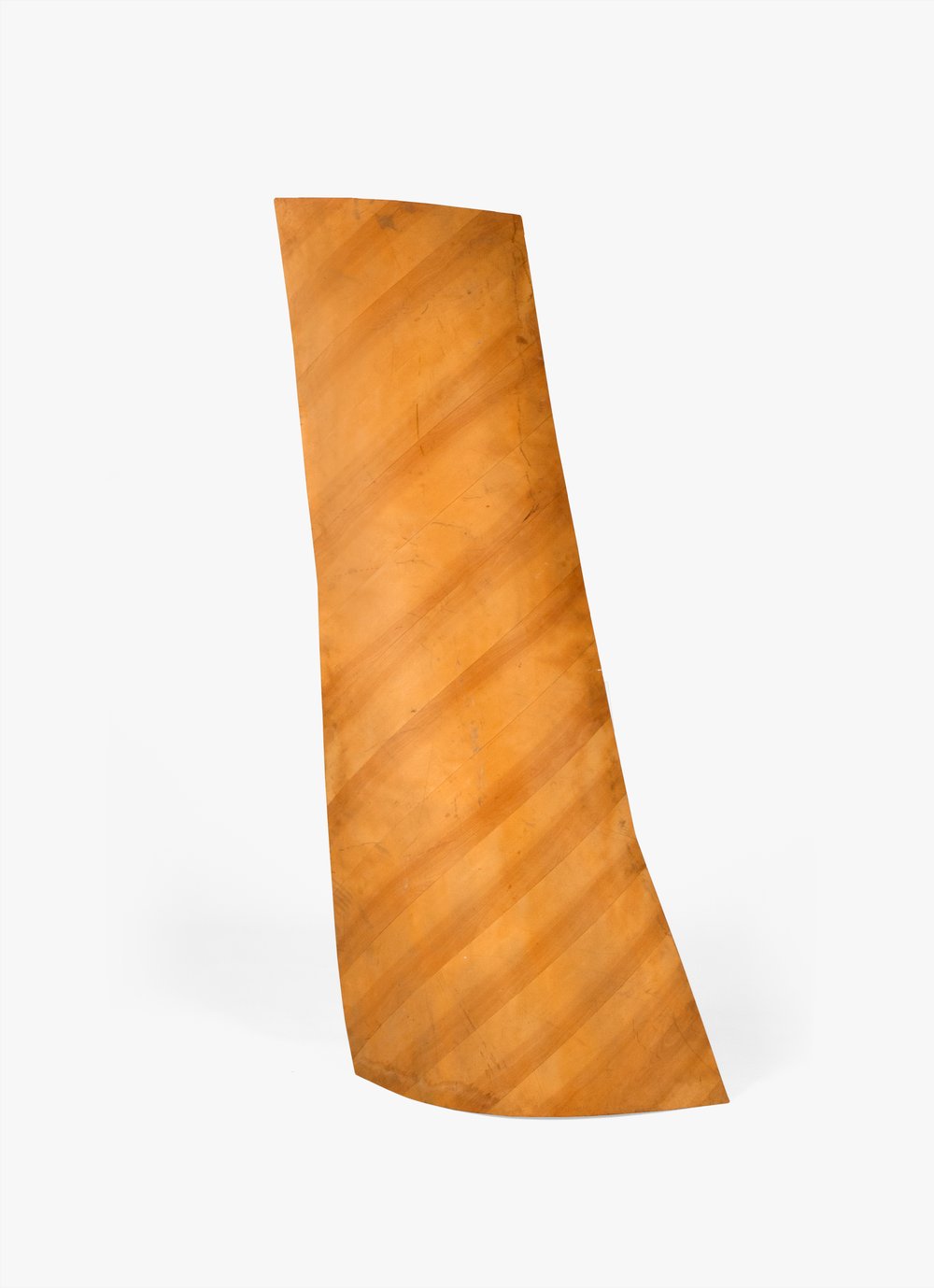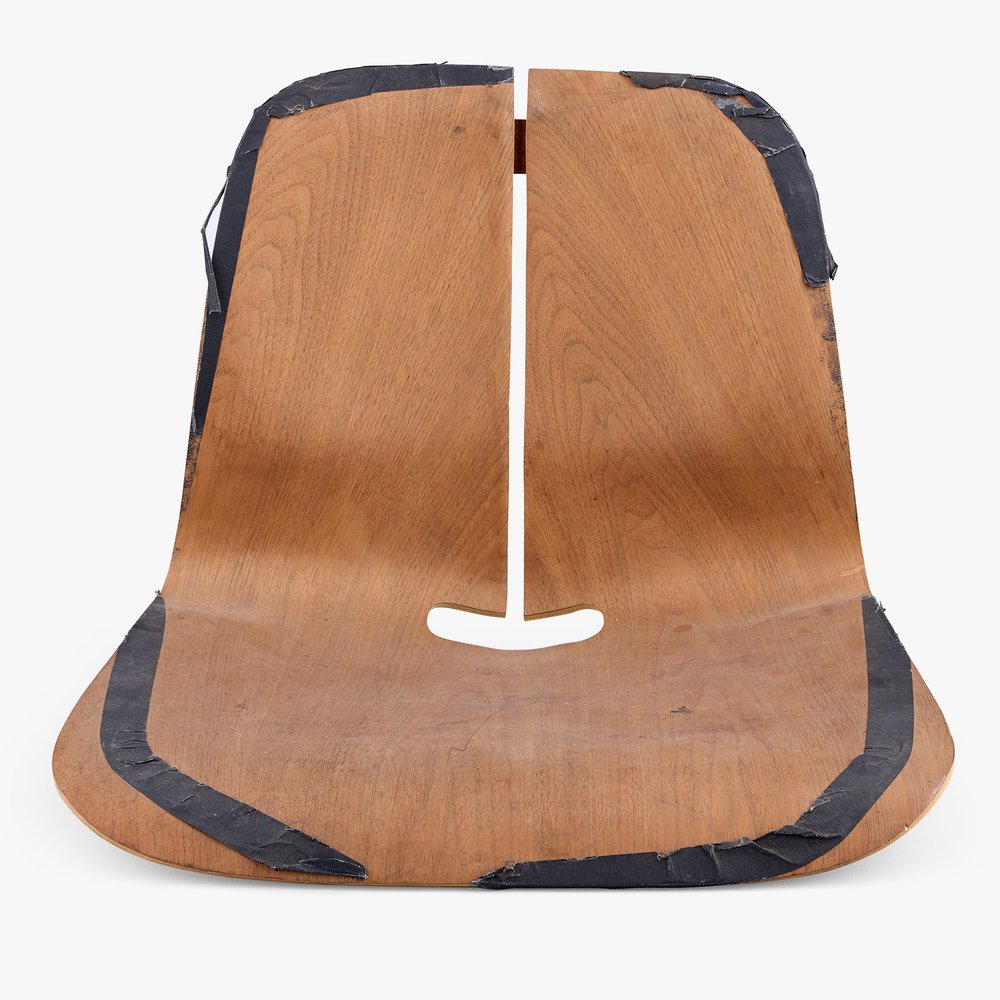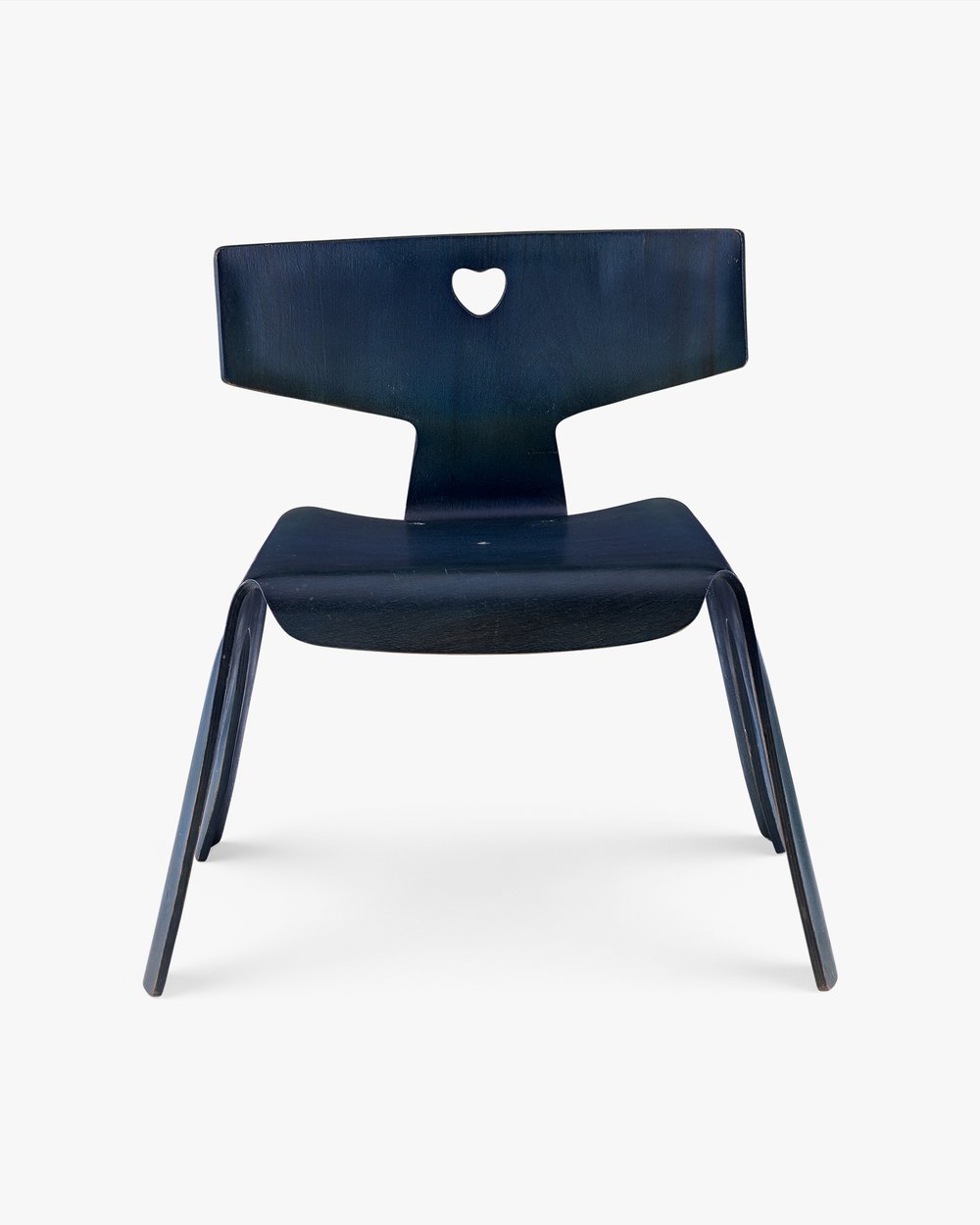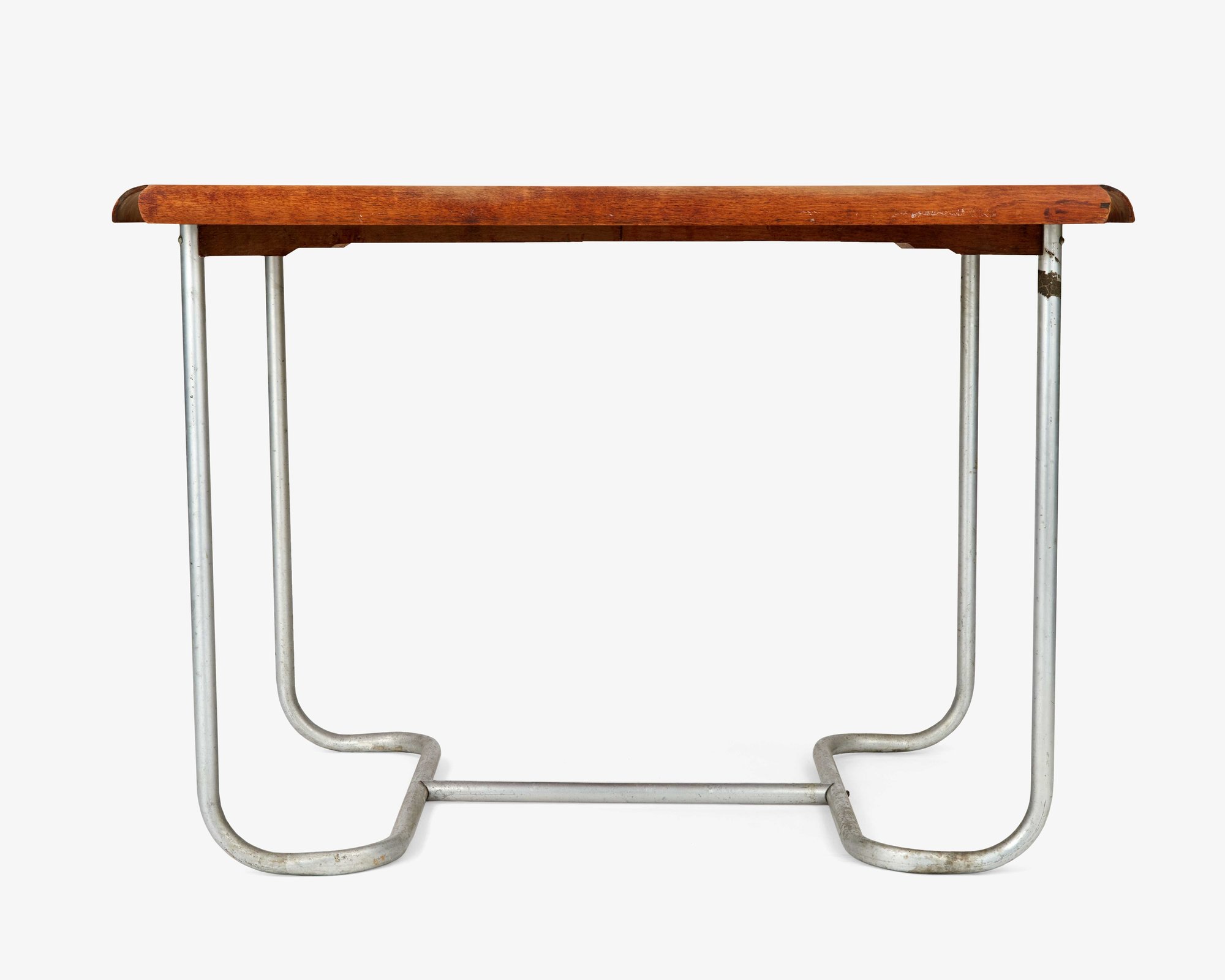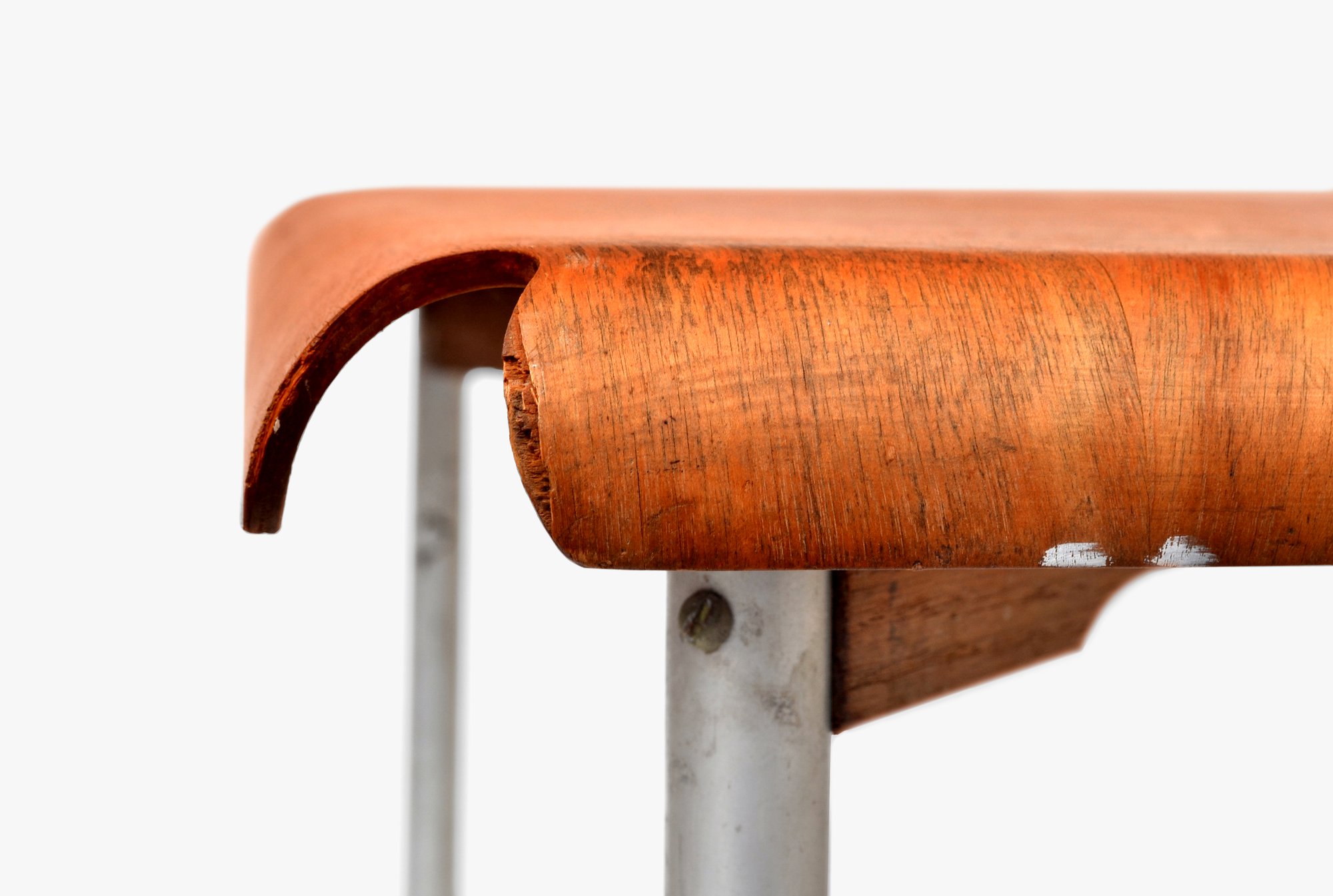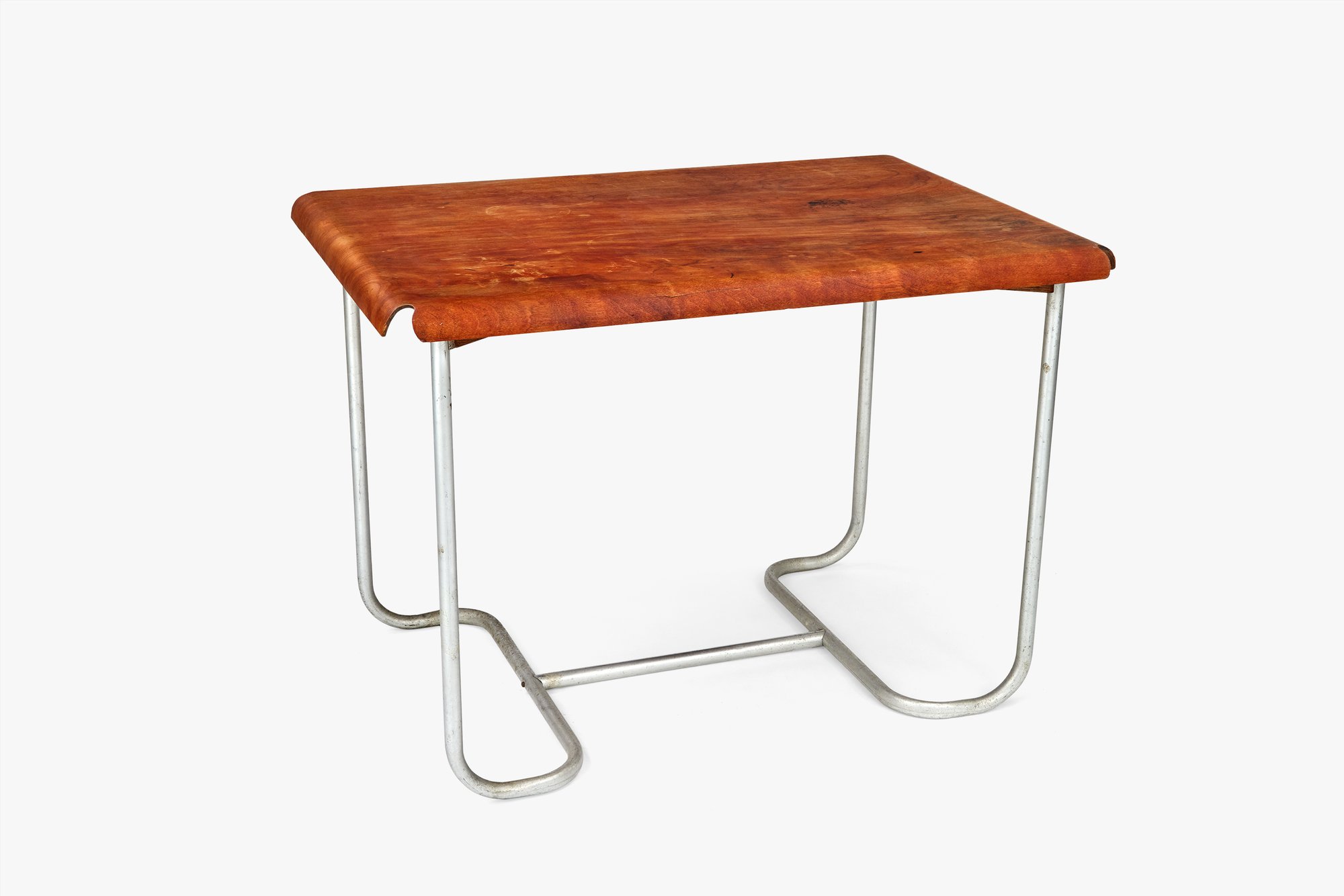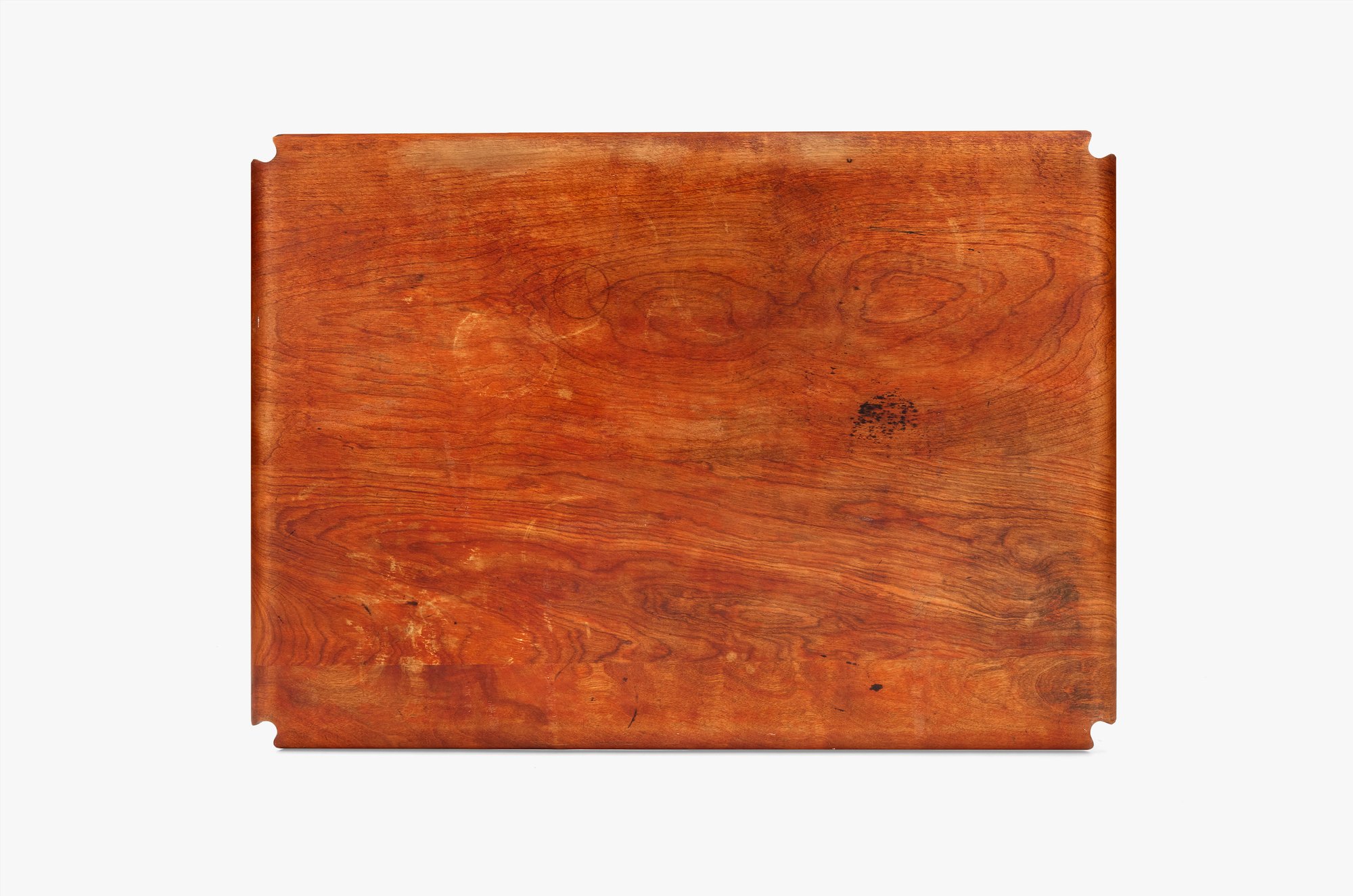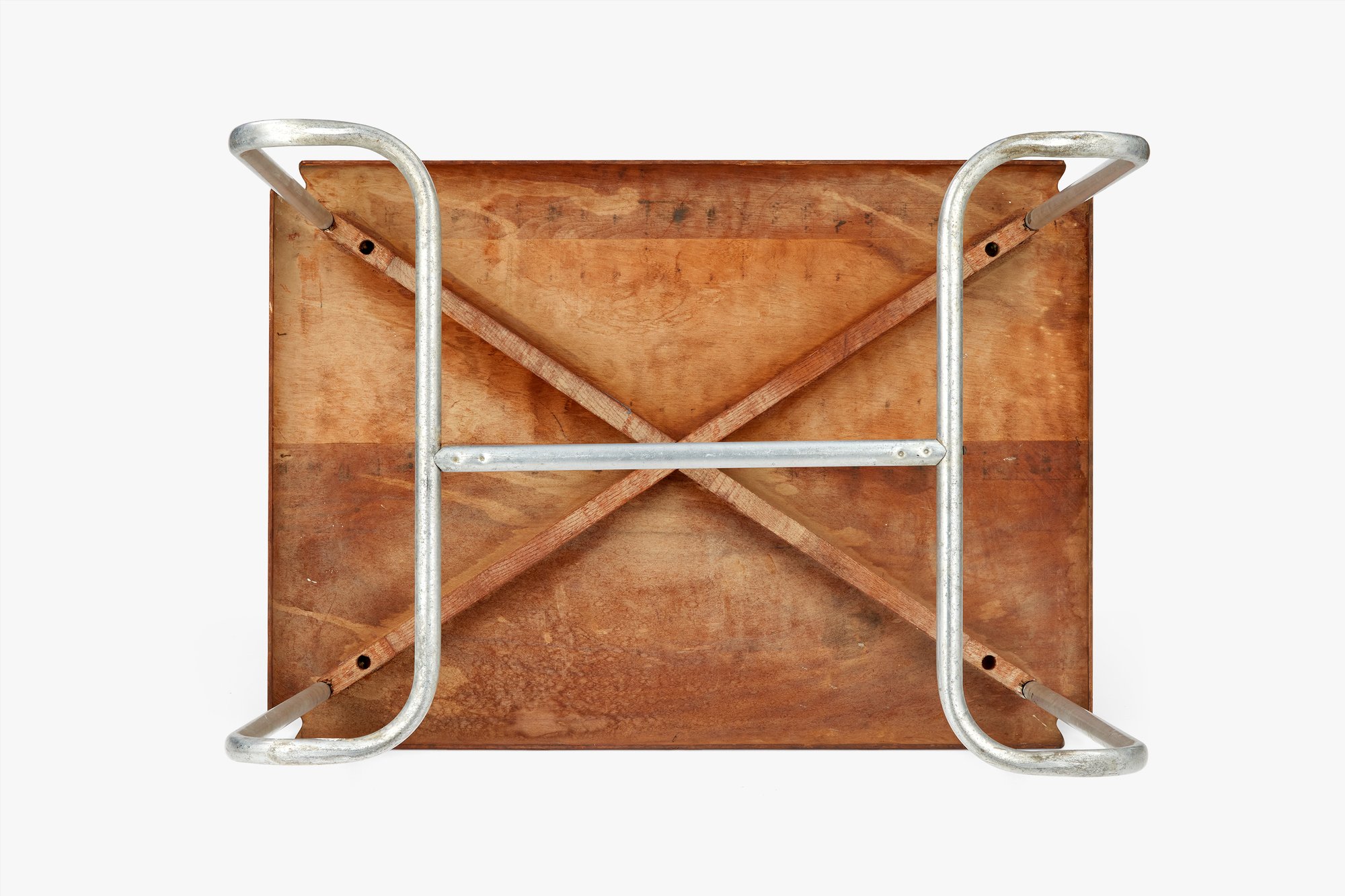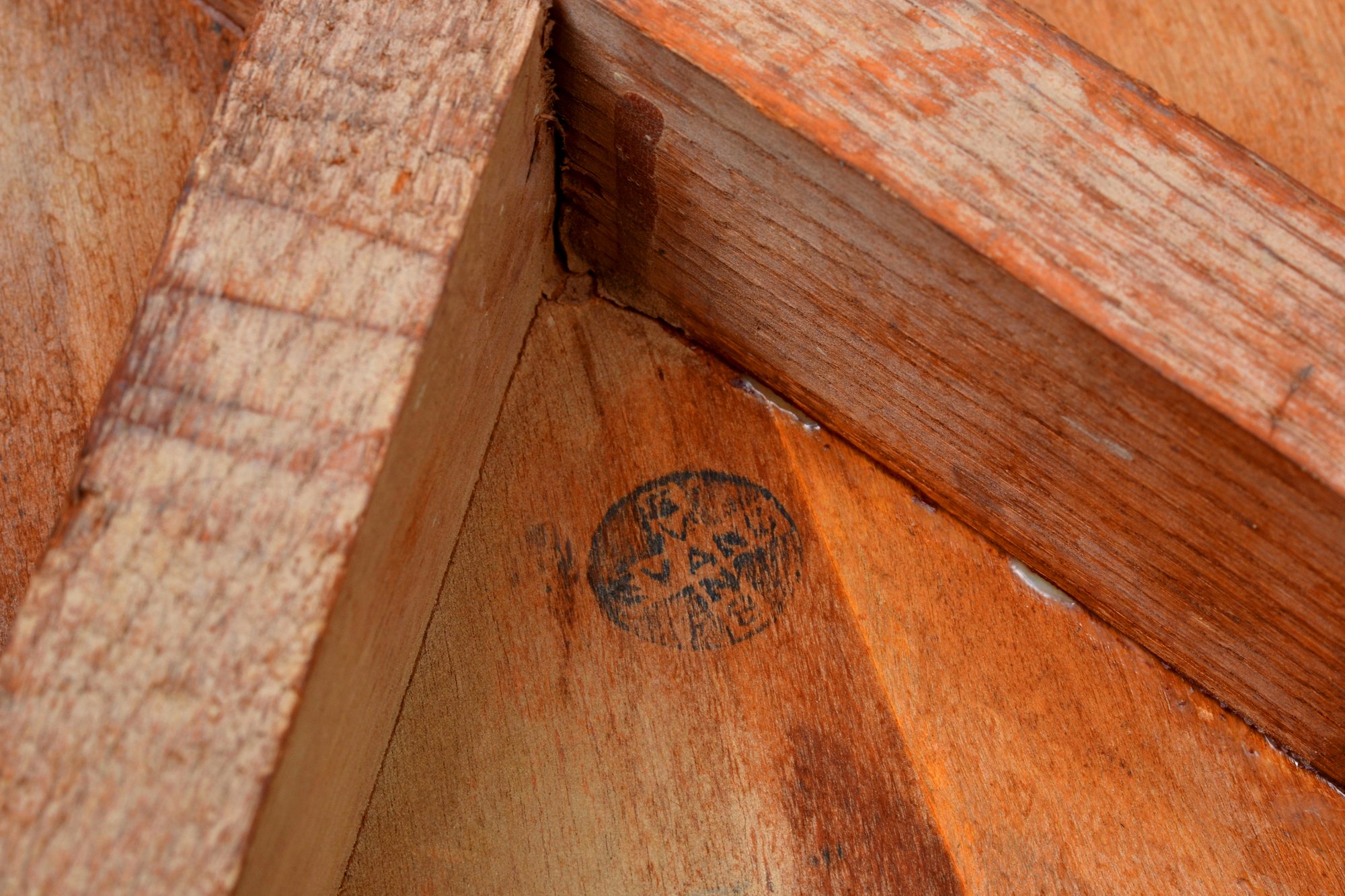Molded Plywood Table with Tubular Aluminum Base
1944
This is the first table that Ray and Charles Eames made together. It features a molded plywood tabletop and tubular aluminum base—an early instance of the designers’ interest in combining materials. The Eameses began experimenting with molded plywood in 1941. While they did not originate the technique (using heat to bend plywood into curving forms dates to the mid-19th century), they were the first to establish a process for the mass production of molding plywood into complex curves. After experimenting with chair seats, the Eameses turned their attention toward leg splints, which they designed for the US Navy. As the war was winding down, they sought other applications for three-dimensionally molded plywood, including tables. To form a surface with a gently folded edge, they cut out the corners to allow each side to bend freely. The table’s base connects underneath its top at five points, and the top could be detached from the base for convenient shipping and storage. This particular example was used for decades in an Oklahoma dentist’s office. The table was made by industrial manufacturer Evans Products’ Molded Plywood Division, which the Eameses ran at the time.
- Manufacturer: Office of Charles and Ray Eames, Evans Products Company, Molded Plywood Division
- Medium:Birch plywood, aniline dye, aluminum
- Dimensions:29 x 42 x 29 3/4 in. (73.7 x 106.7 x 75.6 cm)
- Design Date:1944
- Item:2019.1.35
There is a stamped circular Evans Products logo on the underside.
